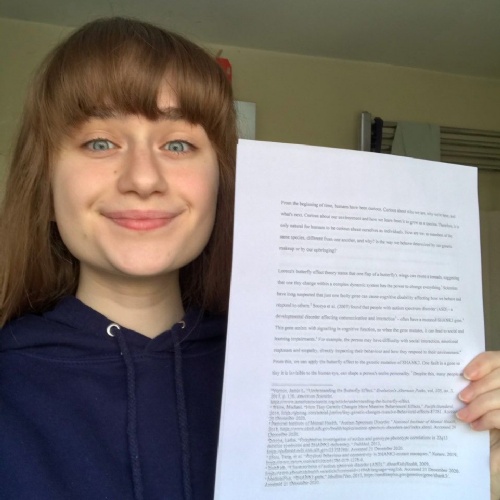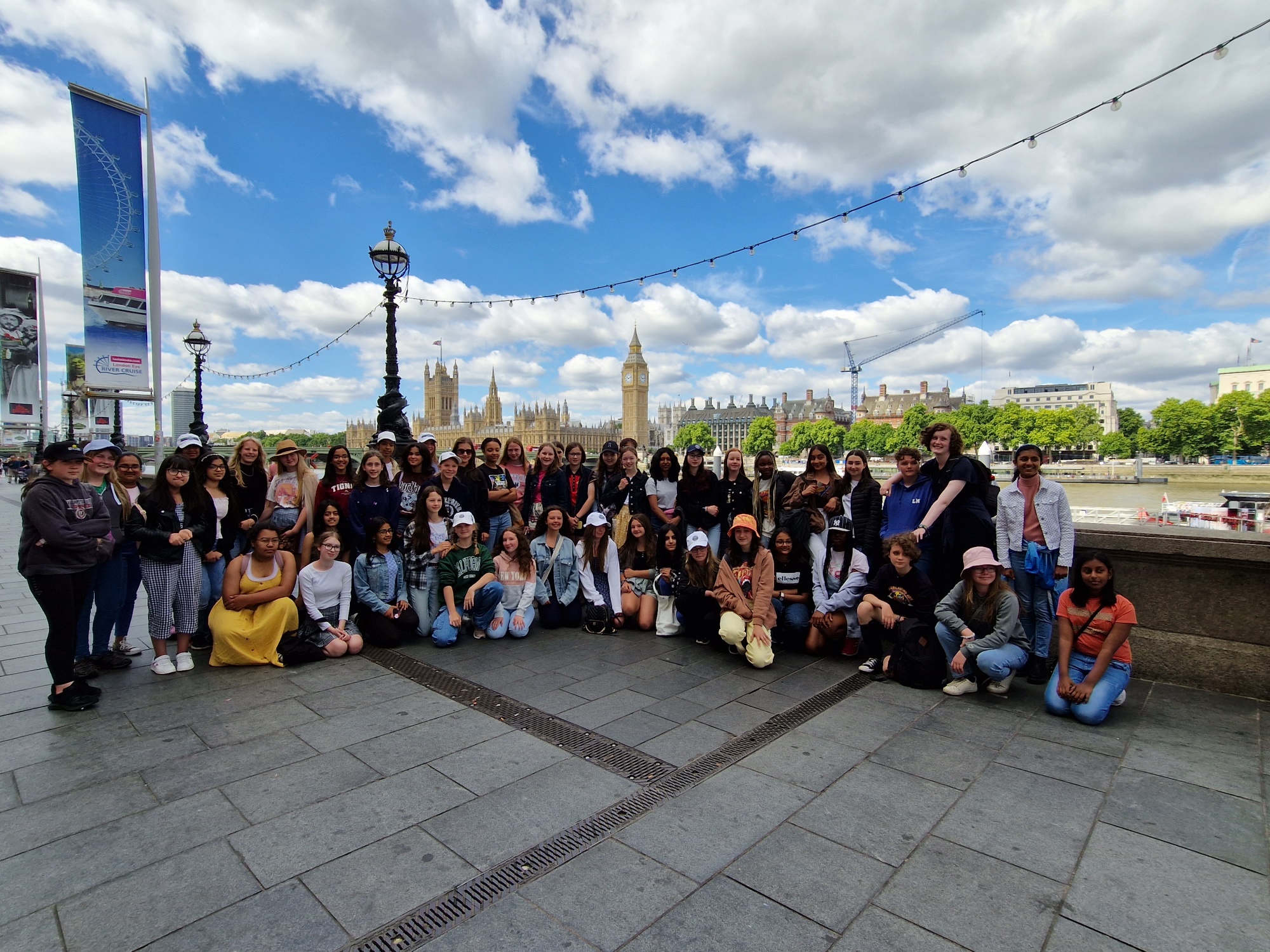Award winning essay writer - Laura Millward

Read all about Laura's Winning Essay
Laura Millward’s 500 word essay entitled “to what extent is human behaviour genetically determined?” won her a 50% scholarship to attend a two week residential academic summer school at Cambridge University.
Her essay writing journey:
November: Laura found out about the competition on Social Media
December: She asked her biology teachers, Mr Koe and Mrs Gosling, for some advice on how to write a scientific essay.
Start of Christmas holidays: She spent a lot of time researching around the topic and choosing which parts of her research were the strongest. “You could look at the question in two different ways - whether humans’ behaviour is dictated by our genetics or by our environment - I made sure to have an equal amount of research on both perspectives before I came to a conclusion.”
She then planned and wrote her essay.
January: Incorporating feedback from her teachers, she wrote another draft, then another. After re-reading her essay many times, she decided she was happy with it and decided to submit it.”
Results:
25th of January: “I was so nervous I woke up at midnight to check my emails! When it got to 5pm and I hadn’t received an email, I was prepared to have lost, which made me feel really disappointed. Then, at about 6pm, I received an email saying I had won a runner-up prize of a 50% scholarship to attend a summer school in the University of Cambridge! I was over the moon! Even though I don’t think I’ll be able to attend because of COVID, I’m really proud of myself and I think I did a great job.”
Laura’s Conclusion to the Question: “to what extent is human behaviour genetically determined?”
There are approximately 7.8 billion humans on Earth 17 and every one is unique. Although I think that human behaviour is mainly genetically determined, who am I to speak for billions of individuals? Even if you determine human behaviour by the flutter of a butterfly or the laws of behavioural genetics, or even something much more complex, our ideas always stem from curiosity.





